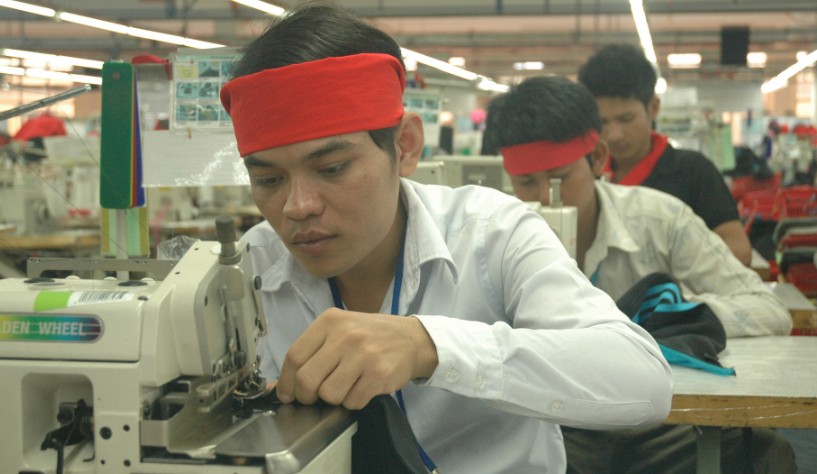After multiple violent riots demanding a higher minimum working wage, garment workers in Cambodia struggle to make ends meet, and continue to work to get more attention focused on their plight.
Last December, five people were killed as a result of clashes with police in Phnom Penh, the site of many of the country’s garment and textile factories In Cambodia alone, there are thought to be over 620,000 workers in 960 garment and footwear factories, where at least 91 percent are female. The current minimum wage is $100 per month; however, the workers are demanding at least $177, which is the average monthly spending amount of the workers.
Bent Ghert, of Workers Rights Consortium, says that at the current wage workers find it near impossible to survive, and must live in rooms hardly large enough for a single person. “We can observe that most workers live in small, 4×4 rented rooms here in Cambodia… which cost on average $25 a month.” In order to make it easier to pay the rent, the workers usually have to live with others, such as a friend or family member.
Mr. Ghert went on to say that the worker generally sends a portion of their pay back to their village in the countryside, from where the majority of them come. This makes it even more difficult to make ends meet. “They also have to send back money for their family or siblings who are still in school. The minimum they send is $17, (as it) makes no sense to send less then that.”
After these expenses, the worker is left with little to purchase food. This, in addition to long working hours, helps contribute to the onset of extreme fatigue and diseases like anemia, which results from low iron blood levels. A recent study found that the average worker in these factories spends $1.30 on food daily. With cheap, low caloric food to sustain them, Jill Tucker of the International Labor Organization says that it’s not surprising that the health of the workers is severely compromised. “Anemia and food insecurity can contribute to wide ranging health problems for workers. Anemia often leads to chronic fatigue, concentrating difficulty and low productivity. Addressing these anemia levels will be complex, but is key to improving productivity and business outcomes in the garment sector.”
Srey Na, a garment worker in Phnom Penh, says that she has little choice but to continue working for the current wages. “I work one full day and (then) half a morning. I don’t want to work so much, but I receive money. So I work. If I don’t take this opportunity I will have difficulties.”
By Brett Scott
Photo: ILO in Asia and the Pacific

This makes me want to come there and do whatever I can to help!